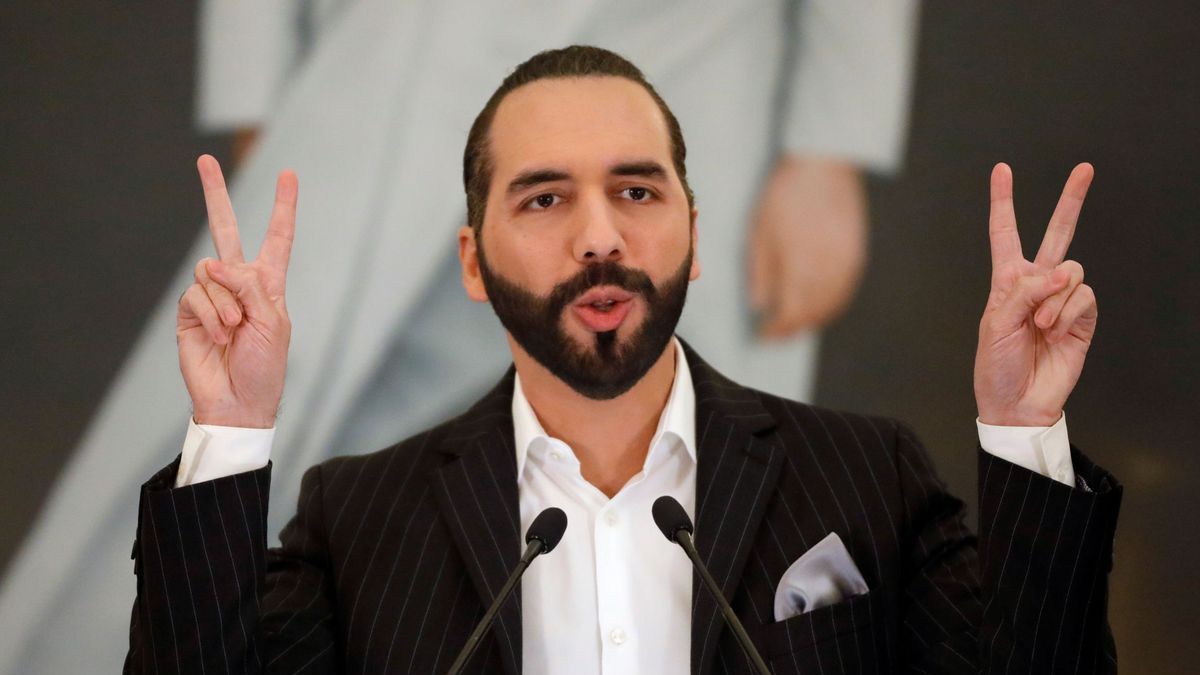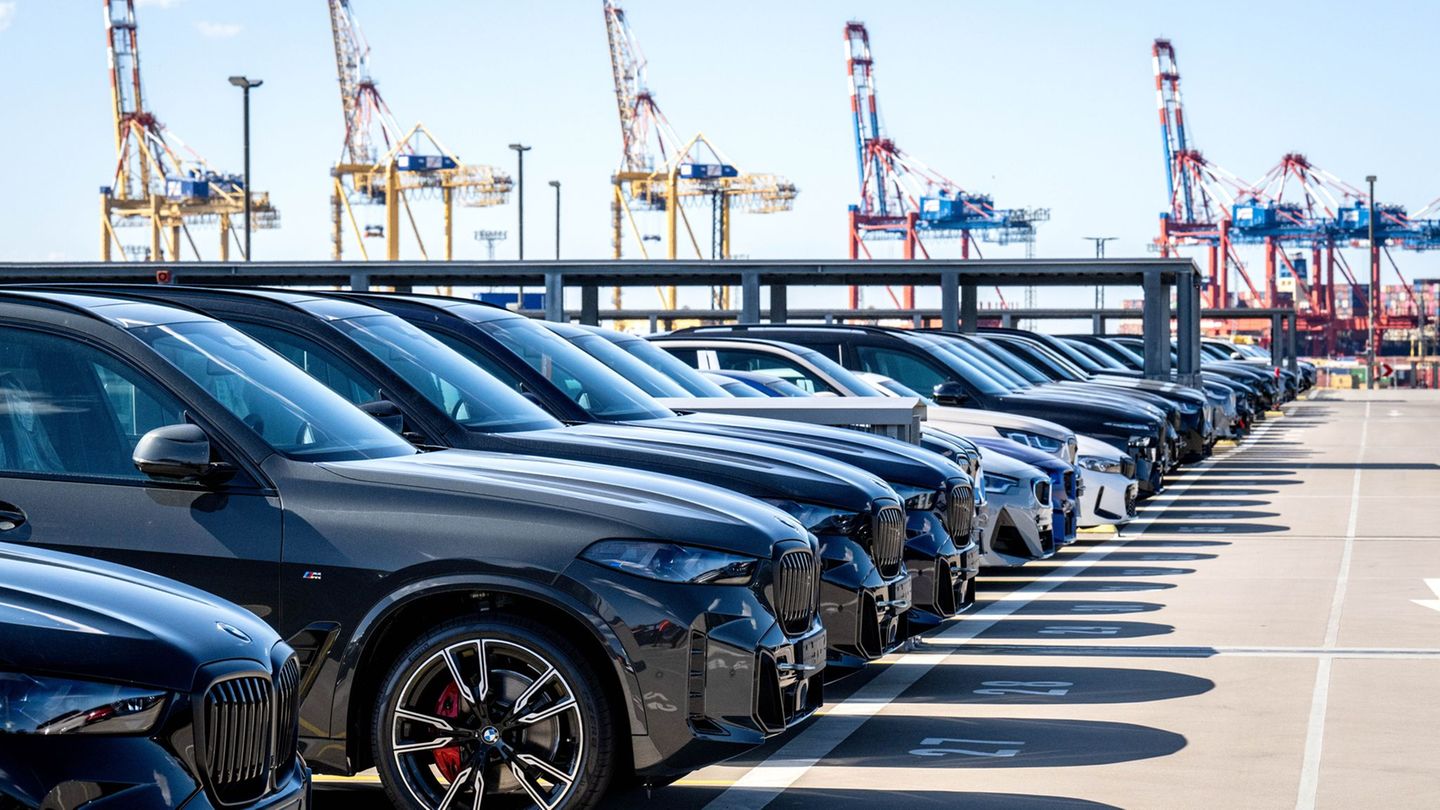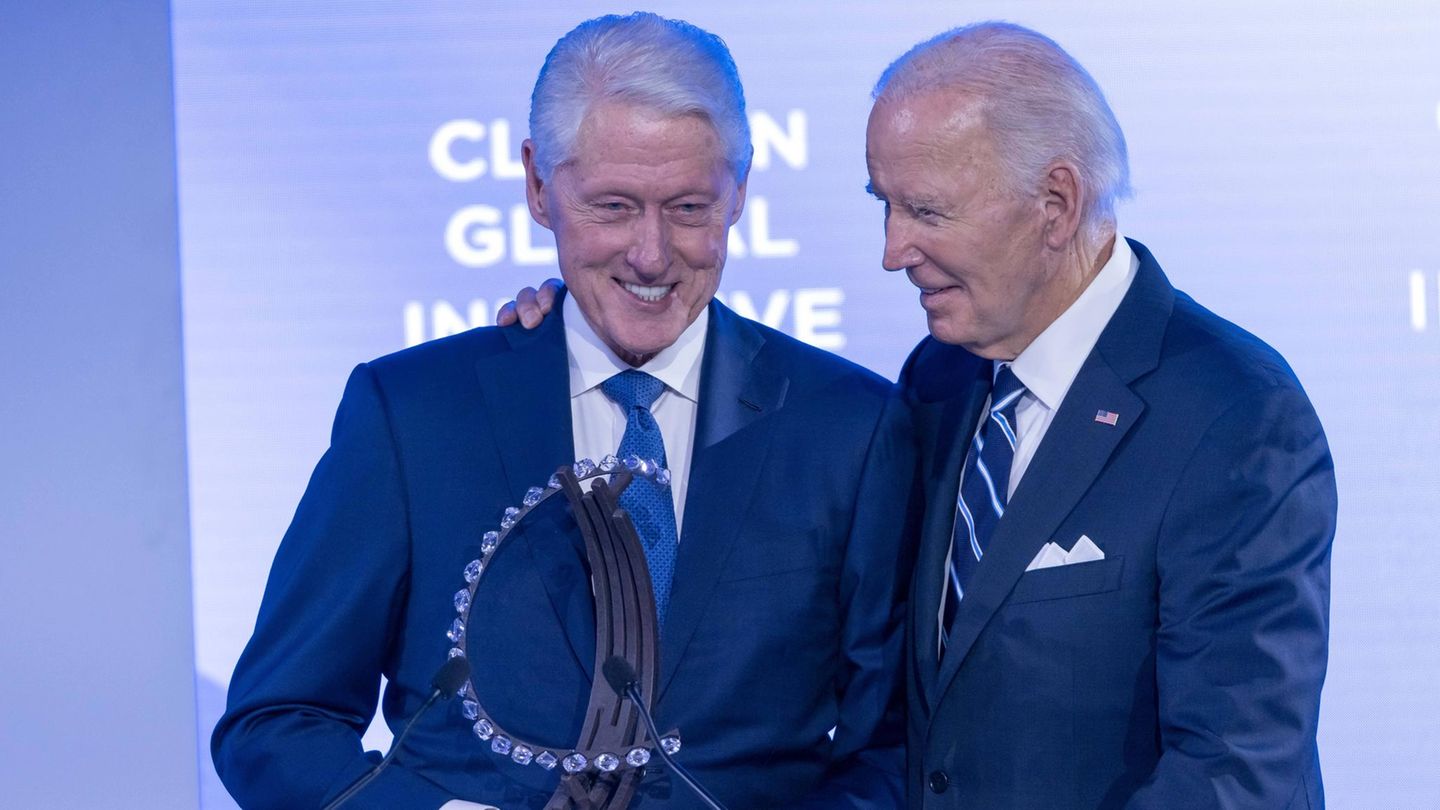The Savior will celebrate on Sunday elections with the president Nayib Bukele as big favorite for re-electionthanks to his enormous popularity for politics “firm hand” against gangs.
President Nayib Bukele heads to the re-election with overwhelming popularity, but accused of abuse in his anti-gang “war”, authoritarianism and illegal maneuvers for stay in power.
This businessman and publicist 42 yearsof Palestinian descent, is practically assured of another term of office five years: comes to these elections 6.2 million voters with popular support 90% and without weight rivals.
bukele
REUTERS
Thanks to his controversial crackdown on gangs, The Savior reduced to all-time lows the murders (2.4 per 100,000 inhabitants, according to official figures) after having been one of the countries in the world with increased criminal violence.
The gangs, which Bukele attributes some 120,000 deaths since the civil war ended in 1992, They controlled neighborhoods and entire cities, terrifying to the population.
“Our life was difficult. They threatened to kill my mother and a brother and my bus company had to pay the gangs $560 a month in extortion. Now there is peace“A transporter who did not want to give her name for fear of reprisals told AFP.
El Salvador state of siege

Courtesy: @FUERZARMADASV
Under a current exception regime Since March 2022, police and military detained some 75,000 people.
Lover of effects, Bukele showed thousands of tattooed gang membersin white underwear, shaved and chained, in the modern jail which opened a year ago with capacity for more than 40,000 inmates, the largest in Latin America.
Organizations such as Amnesty International denounce “arbitrary arrests”, “tortures” and “deaths of prisoners”. Some 7,000 were released after being found innocent.
But the president ignores the accusations of human rights violations: “Our country has changed, no one can deny that”he said in a video on X.
bukele prisons.webp

Looking ahead to the elections: 5 facts to keep in mind about El Salvador
Here are five things to highlight about this country of 20,742 km2 and 6.3 million inhabitants and another 3 million abroad:
- Since 1980, El Salvador suffered a bloody civil war, unleashed by social injustices and military repression, which left 75,000 dead and 7,000 missing.
- On March 24, 1980, a far-right death squad murdered the archbishop of San Salvador, Óscar Arnulfo Romero, with a shot to the heart, while he was celebrating mass in a chapel. On October 14, 2018, Pope Francis canonized him.
- The war ended in 1992 with peace agreements between the leftist guerrilla of the Farabundo Martí National Liberation Front (FMLN) and the then right-wing government of Alfredo Cristiani.
But the signing of the peace did not bring tranquility to the population, which began to be terrorized by the Mara Salvatrucha (MS-13) and Barrio 18 gangs, which emerged with migrants in Los Angeles who were later deported by the United States.
- After becoming considered one of the most violent countries on the continent, El Salvador closed 2023 with a homicide rate of 2.4 per 100,000 inhabitants, according to official figures.
The drastic reduction is attributed to the “war” against gangs that Bukele launched in March 2022 under an exceptional regime imposed after a weekend in which 87 people were murdered.
El Salvador state of exception.jpg
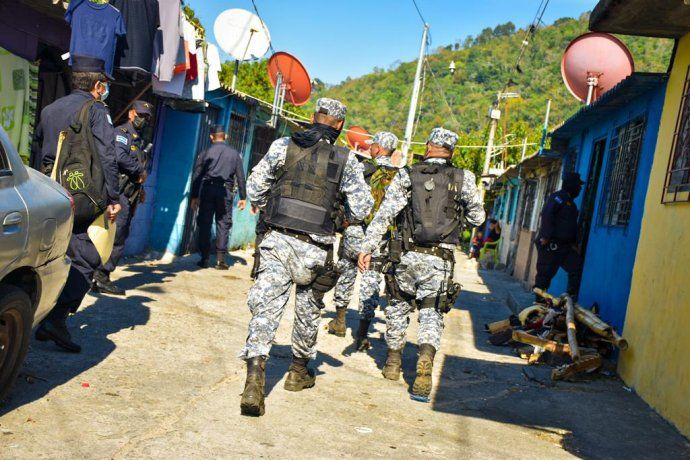
Courtesy: @PNCSV
- More than 75,000 people identified as gang members have been arrested under this regime that allows arrests without a court order and is criticized by human rights groups.
- 29.8% of the inhabitants of El Salvador live in poverty and 8.7% in extreme poverty, according to ECLAC figures from 2022.
- The country has experienced an exodus due to civil war, poverty and gang violence.
- Some three million emigrated Salvadorans help support the country’s economy by sending remittances, which amounted to 8,181 million dollars in 2023, close to 26% of GDP.
- El Salvador was the first country in the world to adopt bitcoin as legal tender, on September 7, 2021, in a dollarized economy since 2001.
Bukele introduced cryptocurrency so that remittances from abroad would flow at a lower cost and so that Salvadorans, 70% of them outside the financial system, could become banked en masse. But 88% of Salvadorans did not use bitcoin during 2023, according to a survey by the Central American University (UCA).
Nayib Bukele El Salvador Bitcoin City.jpg
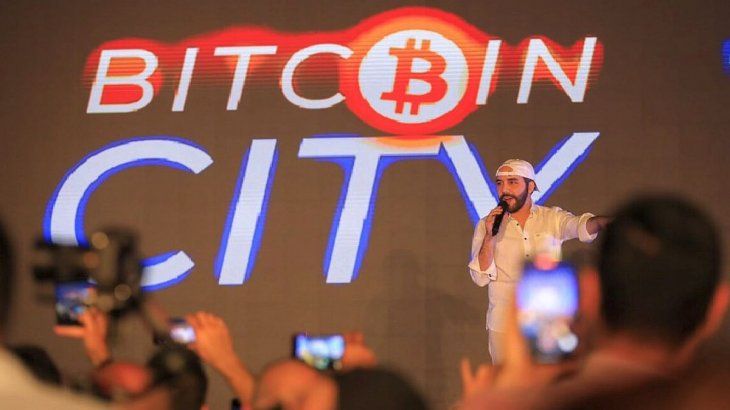
- El Salvador punishes abortion with sentences of up to eight years in prison, but prosecutors and judges classify it as “aggravated homicide,” punishable by up to 50 years in prison.
The harshness of Salvadoran law gained international notoriety in 2013 with the case of Beatriz, a 22-year-old girl who suffered from lupus and who was prevented from having an abortion even though the fetus had no brain.
73 women convicted after abortions or obstetric emergencies regained their freedom in the last ten years thanks to the efforts of feminist organizations.
Source: Ambito

